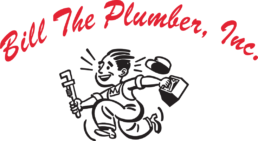24-Hour Emergency Plumbing Preparedness: Essential Tips and Resources
Emergencies don’t wait for a convenient time to strike, and when it comes to plumbing issues, being prepared can make all the difference. Whether it’s a burst pipe, a leaking faucet, or a clogged drain, having the right knowledge and resources at your disposal can help mitigate damage and minimize stress. In this blog post, we’ll explore some essential tips and resources to help you stay prepared for any plumbing emergency, 24/7.
Keep Emergency Contacts Handy
The first step in emergency preparedness is to ensure that you have easy access to essential contacts, including emergency plumbing services, water utility companies, and local authorities. Store these numbers in your phone, write them down and post them in a visible location in your home, and share them with all members of your household. In the event of a plumbing emergency, quick access to these contacts can help you take immediate action and minimize damage.
Learn Basic Plumbing Skills
While some plumbing issues may require professional assistance, having a basic understanding of plumbing systems and how to troubleshoot common problems can be invaluable in an emergency. Familiarize yourself with the location of shut-off valves for your water supply, gas supply (if applicable), and individual fixtures. Learn how to safely shut off the water supply to your home in case of a leak or burst pipe. Additionally, acquire some basic plumbing tools, such as a plunger, pipe wrench, and plumber’s tape, and learn how to use them effectively.
Perform Regular Maintenance
Prevention is key when it comes to avoiding plumbing emergencies. Perform regular maintenance tasks to keep your plumbing system in good condition and identify potential issues before they escalate into emergencies. Inspect pipes, faucets, and fixtures for signs of leaks, corrosion, or damage. Keep drains clear by avoiding the disposal of grease, hair, and other debris, and use drain strainers to catch larger particles. Consider scheduling professional plumbing inspections annually to catch any potential problems early on.
Invest in Emergency Preparedness Supplies
In addition to having the right contacts and skills, it’s essential to have emergency preparedness supplies on hand to handle plumbing emergencies effectively. Stock up on essentials such as plumbing repair kits, pipe insulation, and waterproof tape. Keep a supply of bottled water for drinking and cooking in case your water supply becomes compromised. Consider investing in a portable sump pump or wet/dry vacuum to remove excess water in the event of a flood.
Read Comprehensive Emergency Preparedness Guides
For a more in-depth understanding of emergency plumbing preparedness and other essential tips for handling various emergency situations, consider reading comprehensive guides available online or in print. These guides often provide step-by-step instructions, checklists, and additional resources to help you stay prepared for emergencies of all kinds.
In conclusion, being prepared for plumbing emergencies requires a combination of proactive measures, including keeping emergency contacts handy, learning basic plumbing skills, performing regular maintenance, investing in emergency supplies, and educating yourself through comprehensive guides. By taking these steps, you can minimize damage, protect your property, and ensure the safety and well-being of your household in the event of a plumbing emergency.


